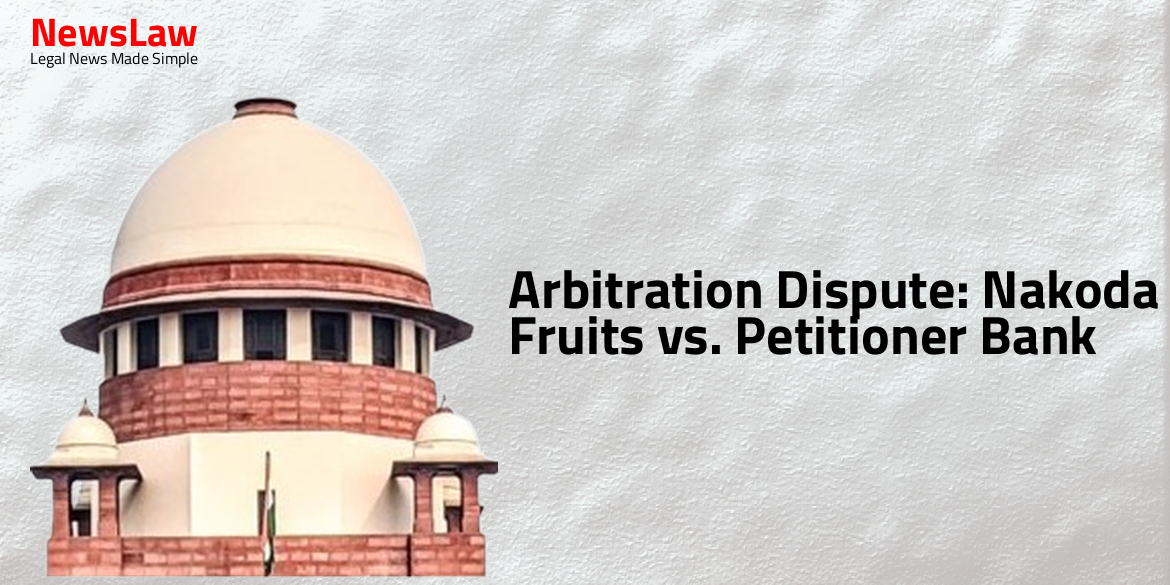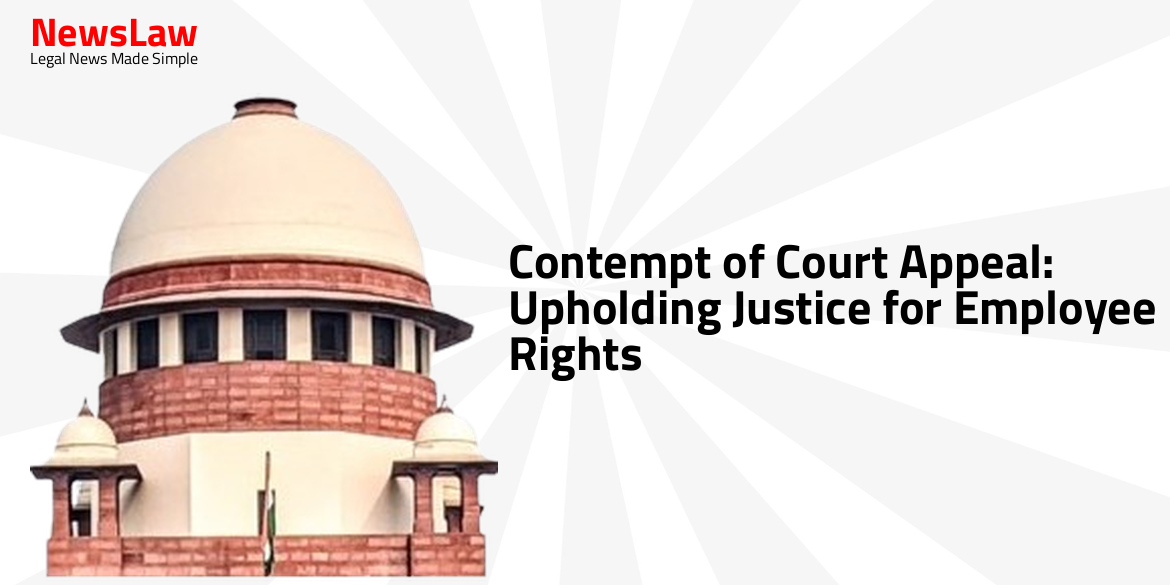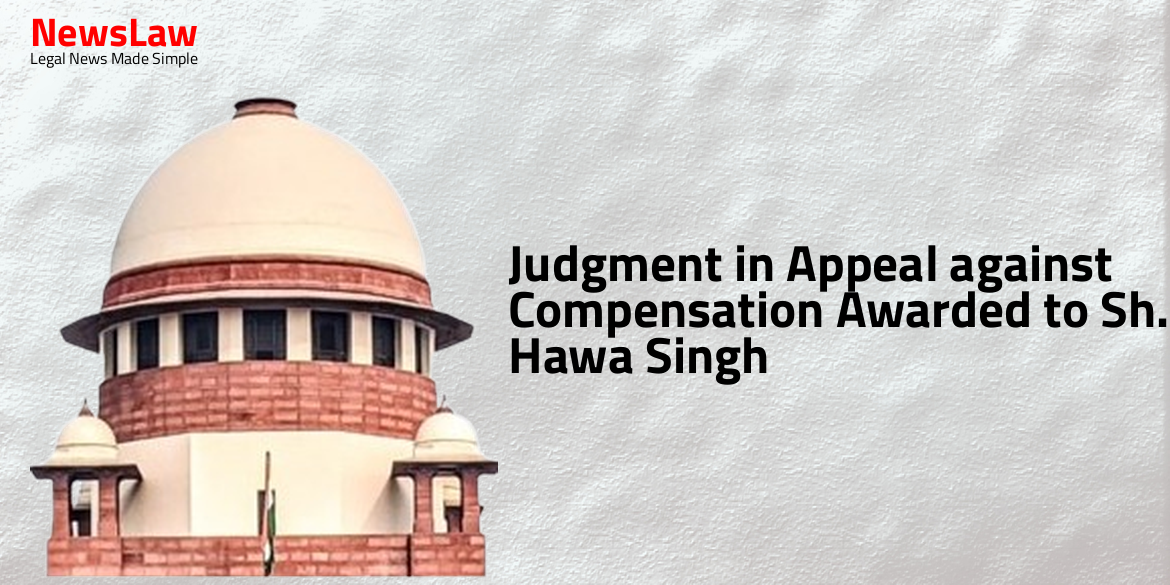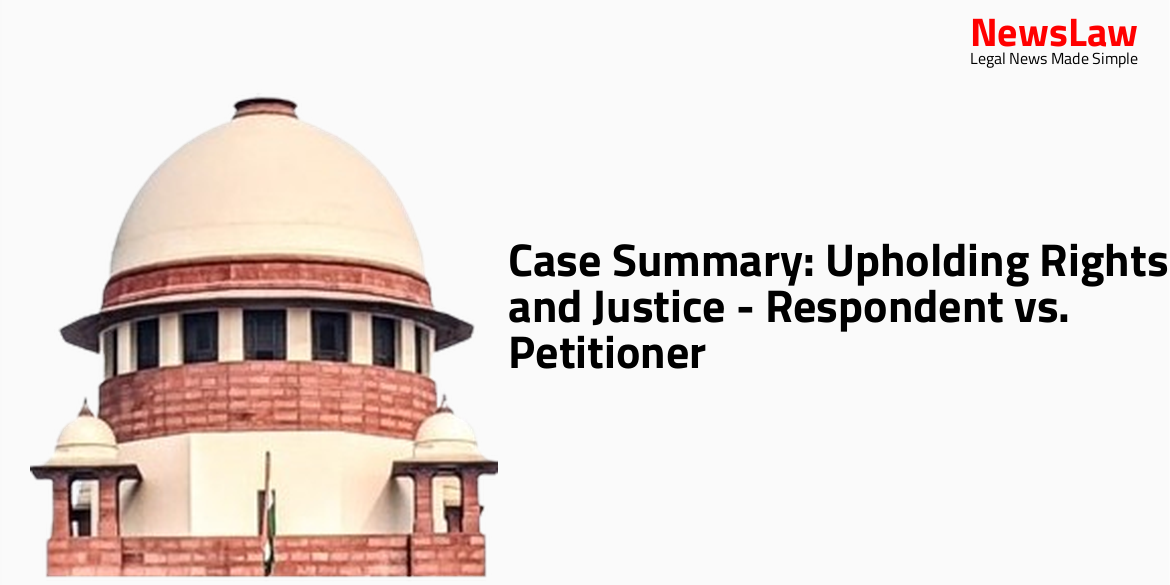In a recent ruling, the Delhi High Court addressed the arbitration dispute between Nakoda Fruits and the Petitioner Bank. The case revolves around claims of default, questionable financial transactions, and efforts to hinder loan recovery. Stay informed about this significant legal showdown!
Facts
- Respondents defaulted on the loan amount soon after disbursement.
- The loan account was classified as a Non-Performing Asset (NPA) on 14.12.2019.
- Moratorium is currently operating under Section 14 of the Insolvency and Bankruptcy Code, 2016.
- Nakoda has not been made a party in the proceedings due to the moratorium.
- The Respondents availed a Non-Housing Loan credit facility amounting to INR 10,52,00,000 for business expansion.
- The Petitioner took legal actions to recover outstanding dues, including measures under the Securitization and Reconstruction of Financial Assets and Enforcement of Security Interest Act, 2002.
Arguments
- The petitioner has been systematically reducing and selling their stake in NGIL to render any judgment/decree/arbitral award as a mere paper decree.
- Last trench of loan amount was paid on 31.05.2019.
- Allegations of default by the respondents are denied by them.
- Resignation of Respondent No 1 and 2 from Nakoda occurred without informing the Petitioner, which is seen as an attempt to protect the valuation of their listed entity.
- Concerns raised about alienation/encumbrance/transfer of shares in Nakoda by respondents to frustrate recovery efforts.
- Audited balance sheet of Nakoda suggests questionable related party transactions to siphon funds.
- Claim amount in arbitration process is around Rs. 17,17,45,884.27.
- Initiation of legal actions led respondents to dispose of assets to frustrate recovery efforts.
- Dispute regarding adjustment of EMIs towards FDRs of Nakoda Fruits.
- Symbolic possession of mortgaged property taken by the petitioner upon SARFAESI proceedings.
- Denial of civil suit collusion allegations by respondents.
- Resignation dates of respondents specified as 2019 and 2019, with denial of financial irregularities.
- Denial of any likelihood of defeating decree/award by respondents.
- Rejoinder mentions imminent risk of property being wasted by respondent acts.
- Notable reliance on legal precedents like Sanghi Industries Limited vs. Ravin Cables Ltd and Tahal Consulting Engineers India Pvt Ltd.
- Transfer of loan from Bank of India to petitioner bank in September 2018 highlighted by respondents.
- Concerns raised about siphoning of funds to related parties, leading to NPA classification.
- Non-recovery of loan extended by Nakoda Fruit to respondent no.4 and diligent repayment claims by the respondent.
- Prima facie case of funds siphoning and likelihood of irreparable loss stated in favor of the petitioner.
- Learned senior counsel argued that there is no evidence to show that Original Name 1 to 3 have attempted to dissipate assets or shares related to the dispute.
- Dubious transactions were alleged in the financial years 2020-2021 and 2021-22, while Original Name 1 to 3 had resigned in 2019.
- The matter of attachment of shares should be left to the arbitral tribunal as the petition under Section 11 has already been filed.
- The agreement with the arbitration clause is not disputed and the shares of NGIL held by Original Name 1 to 4 are personal and unrelated to the loan facility.
- The petitioners have already taken symbolic possession of the mortgaged property.
Analysis
- Appointment of a sole arbitrator for adjudication of dispute was not disputed by the respondents.
- The petition was filed under Section 11 of the A&C Act.
- The parties agreed to the appointment of a sole arbitrator for resolving their dispute.
- The process of adjudication by the sole arbitrator was not objected to.
Decision
- The parties shall preserve the funds/assets to the extent of the loan amount until the matter is taken up by the Learned arbitrator.
- All rights and contentions of the parties, including arbitrability of claims and any preliminary objections, are left open for adjudication by the learned arbitrator.
- The parties must approach the learned arbitrator within two weeks from the current date.
- The matter is referred to the sole arbitrator for adjudication of the dispute between the parties as per the arbitration clause in the agreement.
- The petition filed under Section 9 of the A & C Act is converted into a petition under Section 17 and directed to be placed before the learned arbitrator.
- The remuneration of the learned arbitrator will be as agreed upon by the parties with consultation of the arbitrator.
- Mr. Justice G.S. Sistani, the learned arbitrator, will decide the Section 17 application independently.
- Both petitions and pending applications are disposed of with the disputes referred to the arbitral tribunal.
- The respondents are instructed to maintain the status quo in respect of the mortgaged property or any property related to the loan transaction until the petition under Section 17 is taken up by the arbitrator.
- The learned arbitrator is requested to handle the Section 17 application within two weeks and dispose of it expeditiously in accordance with the law.
Case Title: PNB HOUSING FINANCE LIMITED Vs. JAYESH PRAVIN CHOUDHARY & ORS. (2024:DHC:3895)
Case Number: OMI-360/2023



